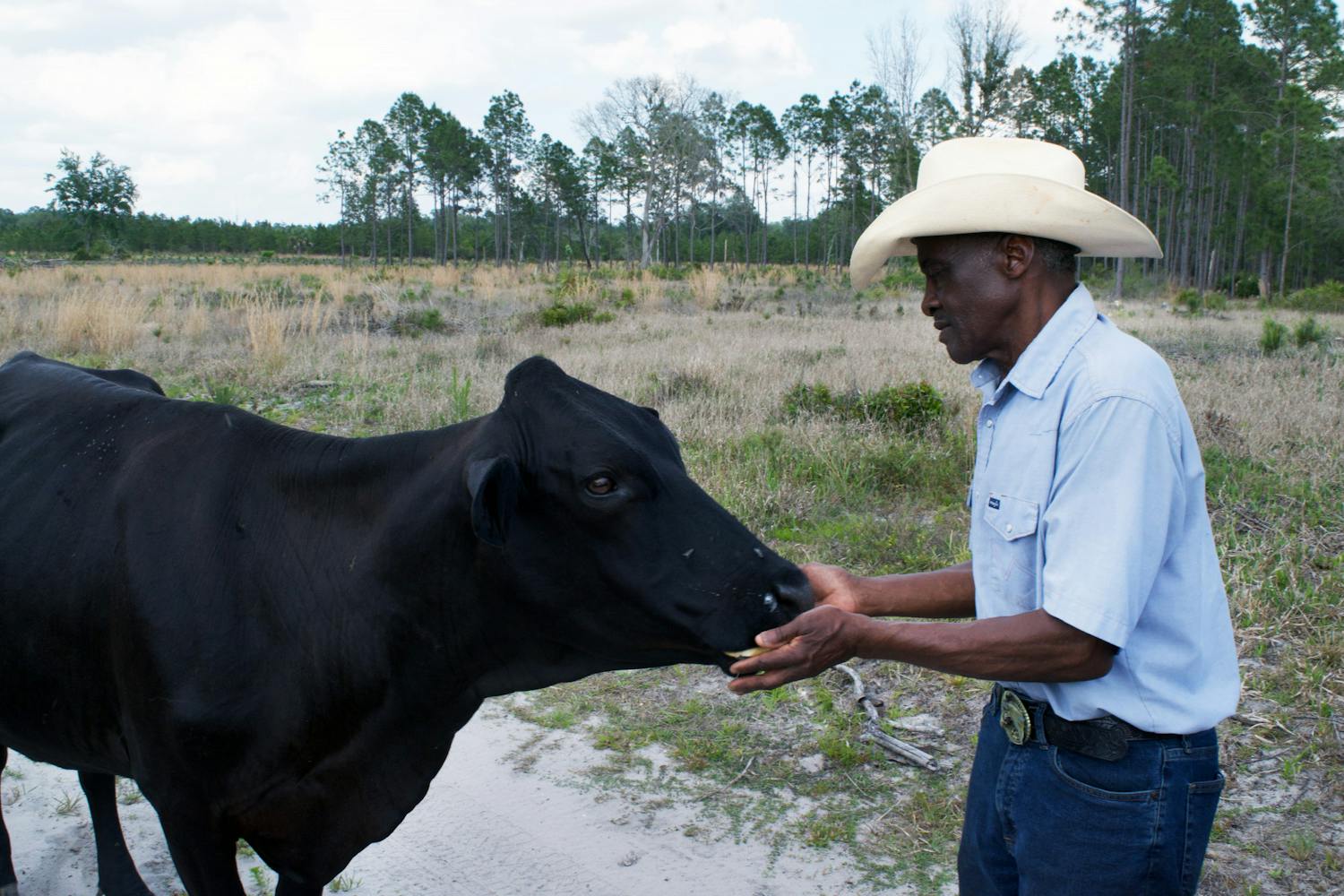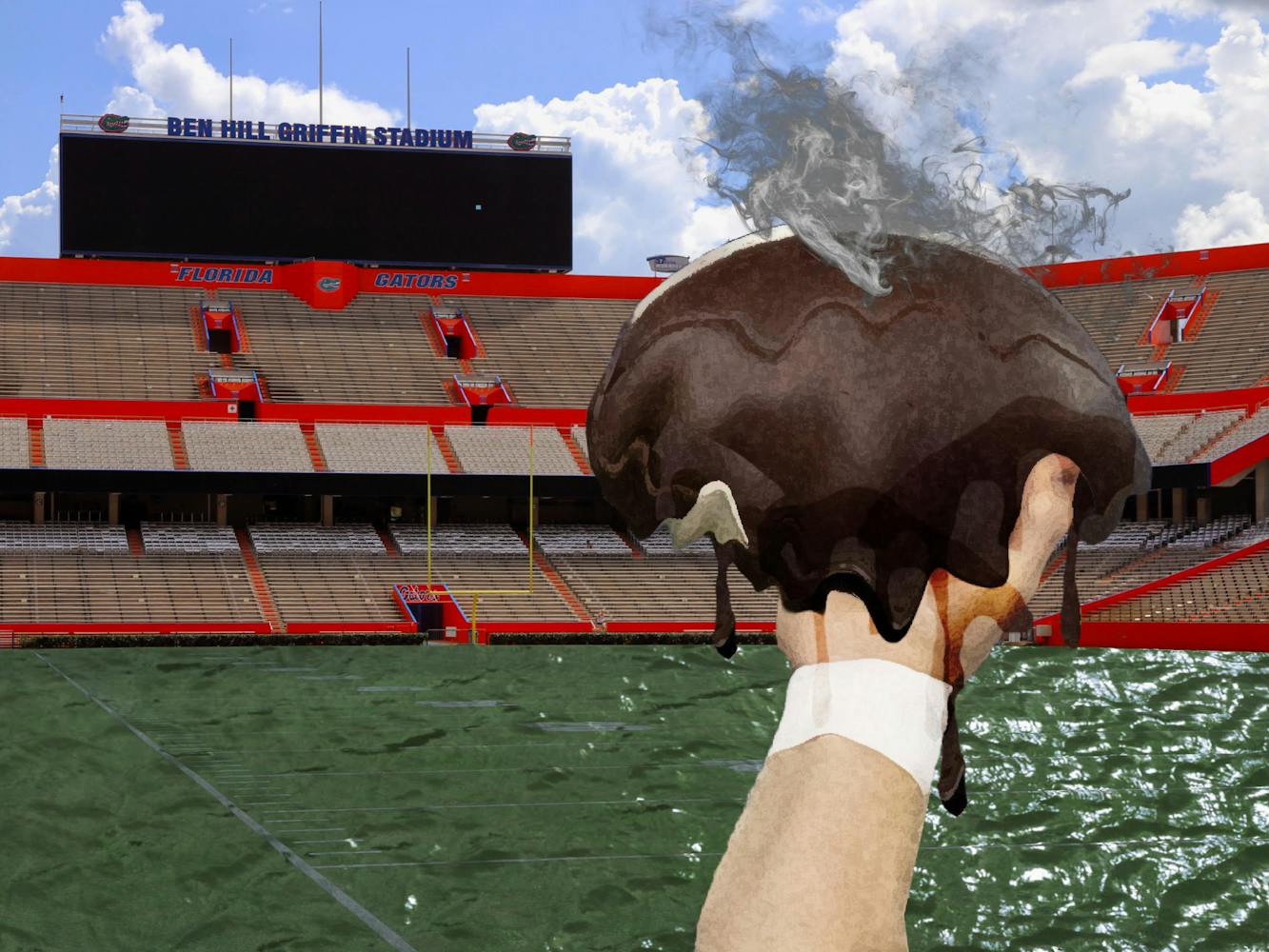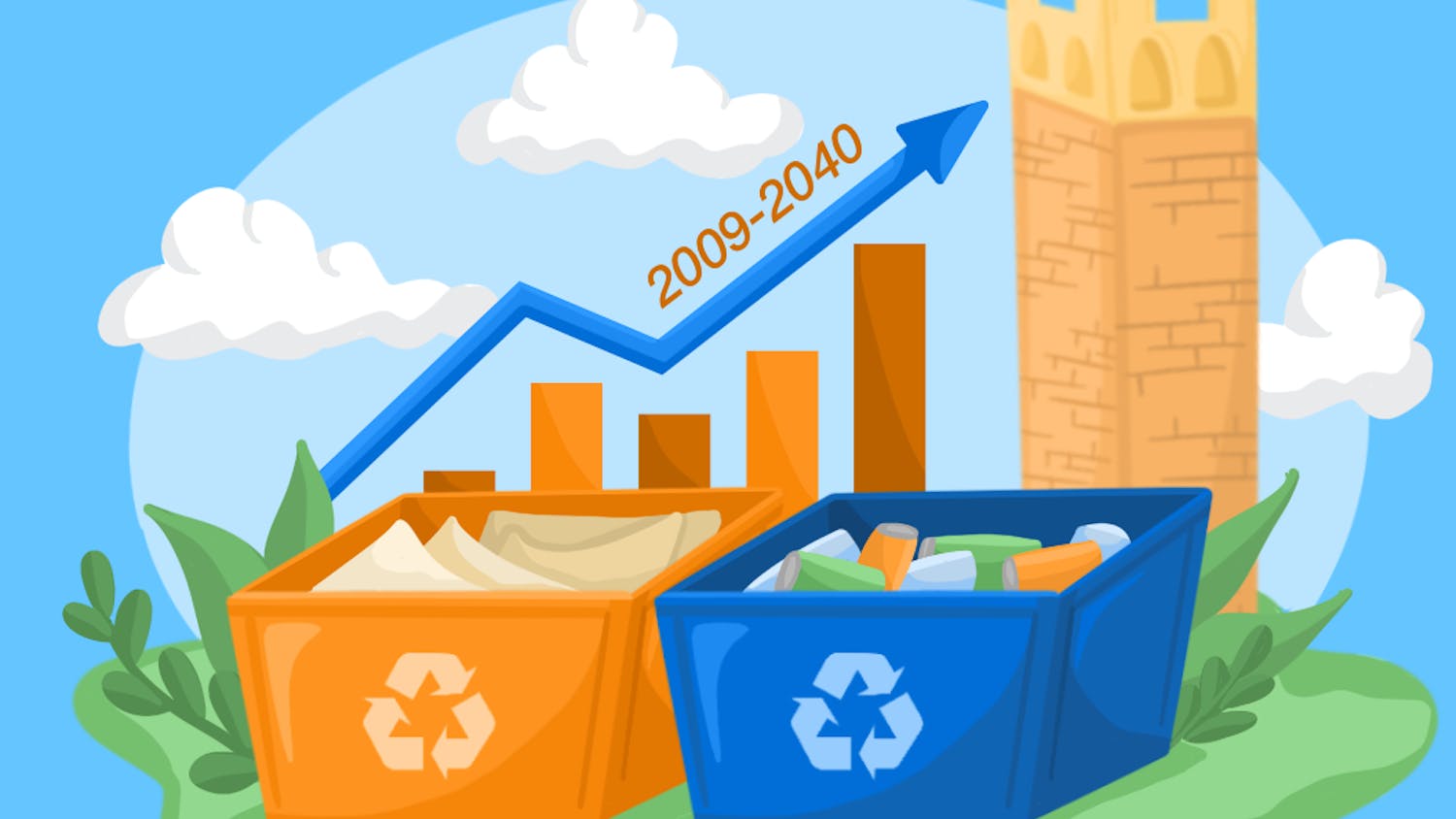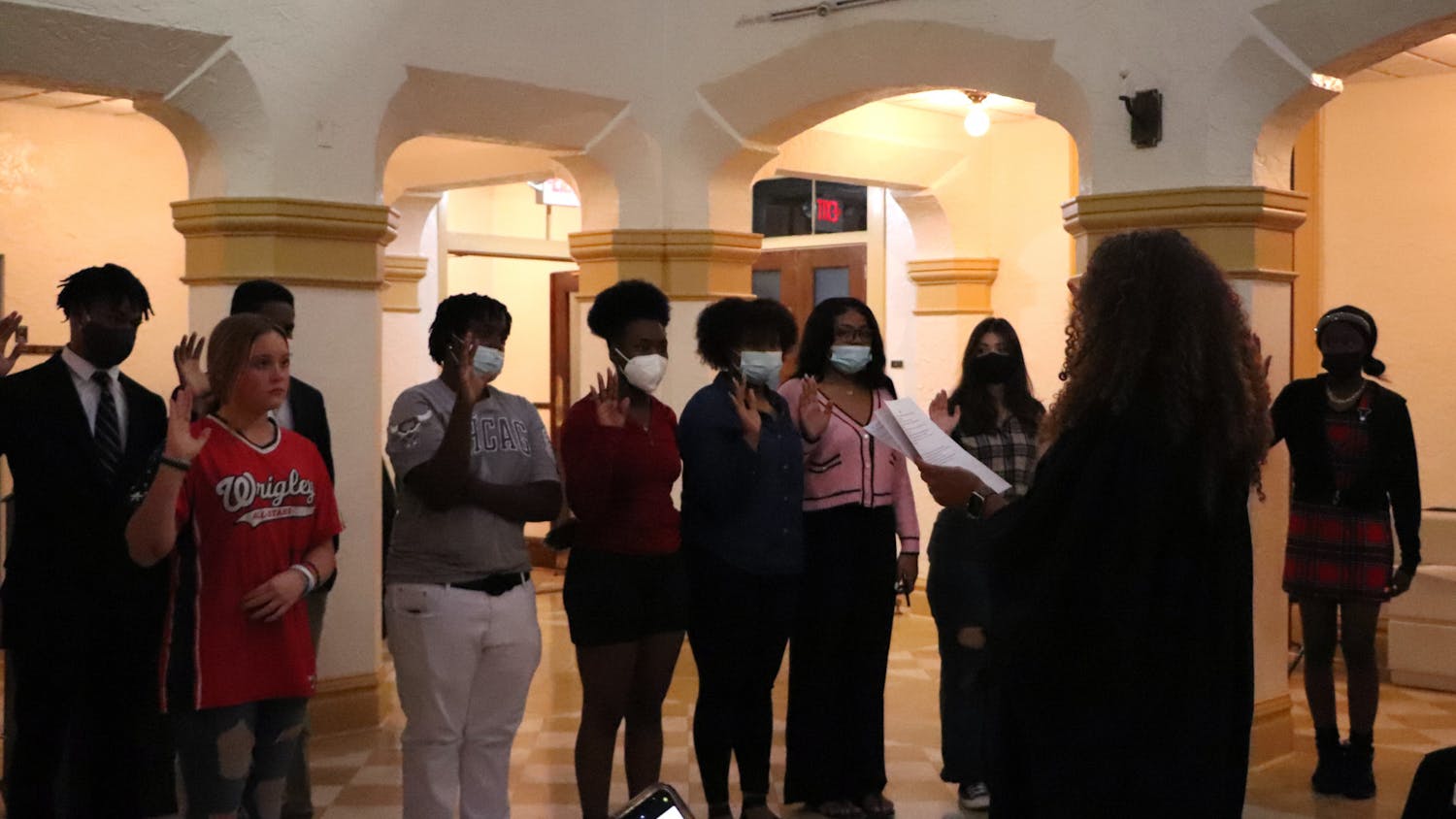In a place like north central Florida, our connection to the environment is everything. It surrounds everyday life no matter who you are — a UF student here to get your degree and leave or a longtime Alachua County resident.
On UF campus, you may walk by dozens of towering oak trees lined with soft pillows of Spanish moss; spend quality time by 10 acres of Lake Alice that are currently suffering from nutrient pollution; or be greeted on your way to class by the once endangered, now treasured Florida Gator. Deep blue, arrestingly clear springs — many at risk of drying up — dot Alachua County and continue to be a favorite for students and families alike.
But over the past few decades, those who love iconic Old Florida have begun to reconcile with an inevitable future: With global warming, rising seas and uncontrolled development, the next generation of students and ACRs may be looking at a bleaker, less vibrant future.
The problems Gen Z will continue to face are personal, as we reconcile with a warming world and a culture that reaps the benefits of Mother Earth but doesn’t give much back.
Throughout The Alligator’s history, staff members have diligently covered the city’s changing environment — whether that be protests against building housing developments on UF’s field next to the bat houses in the ’80s and ’90s or recent efforts to save Ginnie Springs by advocating against a Nestlé permit to use it for bottled water.
At The Alligator, we realize that climate change journalism is sometimes called “the apocalypse beat.” It’s a tough niche to dig into as journalists field the existential dread of informing readers — some who believe worsening conditions are a hoax — of what’s to come.
However, this doesn’t mean we’ve lost hope. As one student told Alligator university reporter Ella Thompson: “A lot of the damage has already been done. But it doesn't mean that we can’t make a change right now.”
In “Where We Stand,” our first-ever edition dedicated entirely to the environment, The Alligator’s Spring 2023 staff hopes to inspire action by giving readers a holistic view of how climate change is impacting UF, Gainesville and Alachua County. In this special project, we cover everything from UF’s climate promises since 2009 to how farmers in rural Alachua County are making their practices more sustainable.
Thank you for reading and for supporting independent student journalism. To make a donation to support future projects like this one, find The Alligator’s PayPal here.
Acknowledgments
Student editors: Alan Halaly, Veronica Nocera, Aurora Martínez, Jiselle Lee, Christian Casale, Emma Behrmann, Kristine Villaroel, Ashleigh Lucas, Minca Davis and Selin Ciltas.
Student contributors: Claire Grunewald, Sophia Bailly, Ella Thompson, Kyle Bumpers, Jackson Reyes, Alissa Gary, Loren Miranda, Zarin Ismail, Gabriella Aulisio, Jake Lynch, Jack Lemnus, Aubrey Bocalan, Siena Duncan, Aidan Bush, Peyton Harris and Allesandra Inzinna.
Student multimedia team: Caia Reese, Gabriella Aulisio, Rae Chan, Ben Nielsen, Brandon Hernandez, Minca Davis, Matthew Cupelli and Diego Perdomo.
Special thanks to the journalists and news editors who served on an advisory board to help guide student ideas: Alex Harris, lead climate change reporter at The Miami Herald; Max Chesnes, environment reporter at The Tampa Bay Times; Hannah Brown, director of The Marjorie; Mary Shedden, news director at WUSF News; Natalia Galicza, fellow at Deseret News; Marlowe Starling, master’s student at New York University and Ellen Bausback, science communicator at The Ohio State University.
Thank you to Cynthia Barnett, environmental journalist in residence at the UF College of Journalism Communications, Gainesville Mayor Harvey Ward, UF Office of Sustainability Director Matthew Williams, Cultural Arts Coalition Executive Director NKwanda Jah and UF Journalism Chair Ted Spiker for helping facilitate The Alligator’s panel.
With any questions or feedback about the project, please feel free to contact Editor-in-Chief Alan Halaly at editor@alligator.org.














